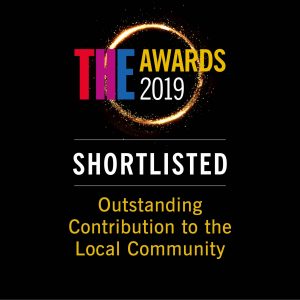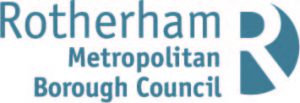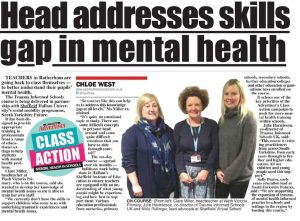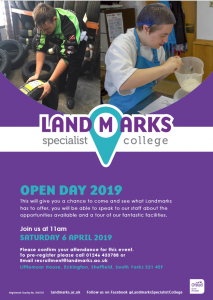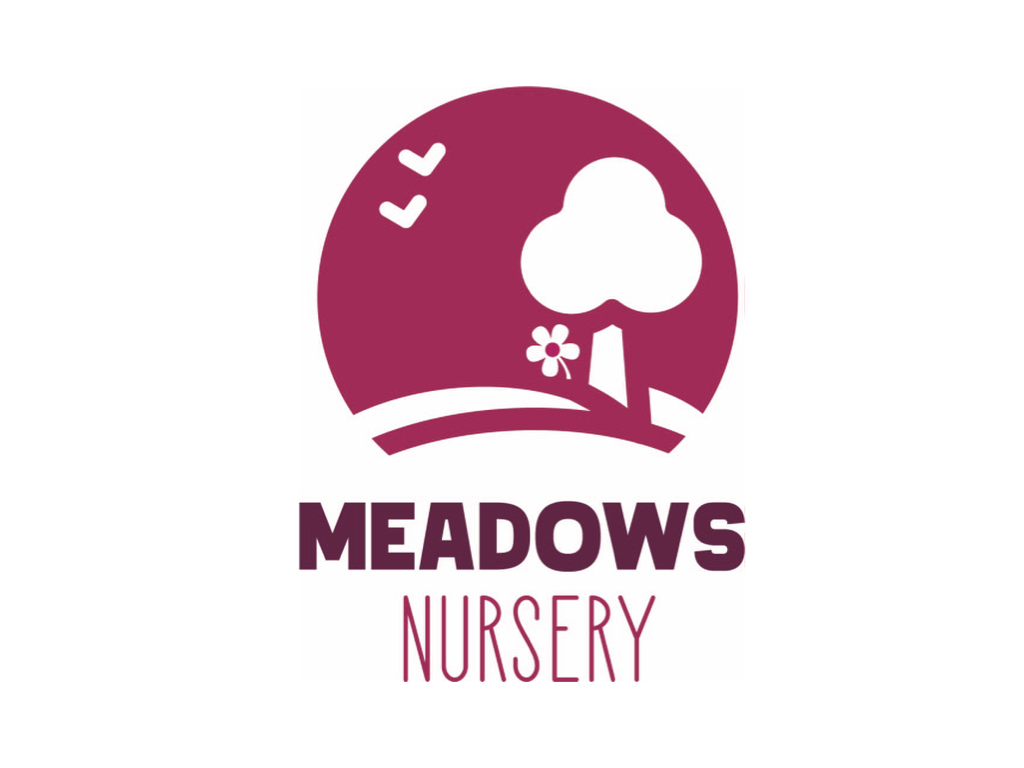There is a crisis in teaching. The equation is fairly simple: Not enough people are coming into the profession to meet the growing number of pupils – and too many are leaving.
Sue O’Brien, teacher recruitment and retention lead for South Yorkshire Futures
The Department for Education’s (DfE) new Recruitment and Retention Strategy, published today (28 January 2019) faces the issue head on with clear priorities and a commitment to work with the profession to deliver the strategy. Sheffield Hallam (through Sheffield Institute of Education and our South Yorkshire Futures programme) has been working closely with DfE to look at the issue on a regional level – and we are referenced in the report (page 34) for the successful pilot we have been running.
The focus for this issue, justifiably, is often on the literal starting point for the teaching profession: recruitment, Recruiting trainees is undoubtedly challenging. They have diverse needs, backgrounds and experiences, and therefore need individualised, clear advice and support.
So in thinking about this issue I’ve decided to disrupt the order slightly by starting from the other end of the journey, or the other ‘R’: Retention.
The number leaving in the first year after qualifying has remained reasonably steady over the last five years at around 15 per cent – but the numbers who leave in years two, three, four and five continues to increase. Within three years of training more than a quarter have left the profession. This reaches almost one third by year five.
It’s no great leap to understand that if we get retention right, then recruitment will follow. Satisfied, fulfilled teachers will attract more to the profession than, I would argue, any number of golden hellos. Clearly there is value in focusing on retention as a platform to support recruitment – but it goes much further than that. We have a moral imperative to get this right.
Making a difference
Teachers come into the profession to make a difference. To transform lives. To give something back. But this shouldn’t be at any cost – and certainly shouldn’t be at personal cost. To find out a bit more about what encourages or stops applicants from joining the professions, we carried out a piece of research through South Yorkshire Futures. The results were instructive and revealing.
Amongst the data, the most eye-catching was this: Our research revealed that it is family friends, family members and even teachers of the potential applicants who are most often cited as the people who discouraged them from joining the profession.
As a result, we’ve taken a lead in our region to look closer at his issue to see how we can change this perception. This includes having conversations about how well we look after our teachers and asking important questions to help inform our approach.
What are teachers’ experiences of being in a school? Are our schools great places to work?
These might seem like simple questions – but ultimately, the responses provide us with a defining narrative. It is the experience of the teachers which will determine if they stay in the profession, gain the satisfaction and rewards they anticipated at the start of their journey, and subsequently become the advocates of the profession that we so clearly need.
Centre stage
I’m very fortunate in my role. I get to visit schools across South Yorkshire and meet inspirational leaders and teachers who clearly love their job. They care about the young people they teach, they know what makes them tick and they know how to motivate and excite them. You can see how much satisfaction they get from knowing that what they do on a daily basis is having a positive and lasting impact. These are everyday people who every day make a genuine difference to our young people.
With this in mind, for our recruitment campaign this year, we took a very different approach. For the first time we put teachers centre stage (quite literally) to tell their honest and compelling stories. The teachers, at various stages of their careers, spoke to future teachers about why they do their job, what gets them out of bed in the morning and what the profession has given to them. You could have heard a pin drop when they spoke.
Therefore if we want to recruit more teachers, we have to face the fact that it is teachers themselves who are the best, or worst, friend of the recruitment campaign, depending on their experience. They are our voice, our narrators, our critics, our advocates – and they all have a powerful story to tell.
Place
We may all have different views about what makes a great place to work – but we all want to work in a great place. We all want to work in an environment where we feel that we belong, where we have the support that we need, that our contribution matters and where positive supportive relationships are nurtured – so that’s where we’re starting.
So we’re not starting with outcomes, we’re starting with the place. We’re looking at what that place has to offer the teacher. And we’re looking at what support there is in that place (and whether it is the right support).
Great teachers
Great teachers transform lives – and every child deserves a great teacher. But this won’t be the case until we have begun to properly address the retention challenge. To do this, we must keep asking ourselves the difficult but simple questions: Are we offering the best environments in which to work? Are we meeting the needs of all our teachers?
Once we start to genuinely listen to the answers to these questions and begin to translate them in to actions and behaviours, we might start to see a workforce that feels more valued, motivated and excited – and I believe could result in a profound positive shift in recruitment and retention as a whole.


